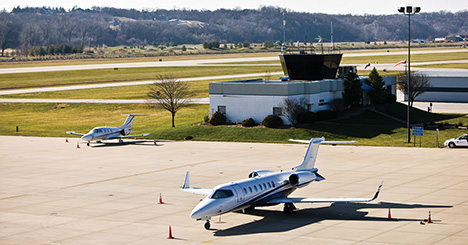
April 24, 2017
Current and former congressional lawmakers continue to raise concerns over a recently introduced White House proposal to privatize the nation’s ATC system.
For example, Reps. Peter DeFazio (D-4-OR) and Rick Larsen (D-2-WA) – both congressional aviation-policy leaders – were quick to respond to a recent Washington Post editorial supporting ATC privatization.
n a joint letter published April 18, the two emphasized their “very real concerns” over the concept, citing findings in a study by the nonpartisan Government Accountability Office (GAO).
“Last year, the GAO found that a privatized air traffic control system would be ‘too big to fail,’ meaning taxpayers might have to bail out the corporation if it couldn’t pay the costs to operate a safe system,” the lawmakers noted.
“Privatizing our air traffic control system presents myriad risks and perils,” they concluded. “Targeted reforms can achieve our common objectives and maintain our nation’s unparalleled aviation safety record.”
In similar fashion, the two congressmen sent a letter responding to a recent Wall Street Journal editorial favoring ATC privatization.
Their letter to the Journal, published April 2, challenged the paper’s editorial claims, noting: “You state that ‘calls for change [to the air-traffic control system] are bipartisan.’ No congressional Democrats have called for change, and in fact all Democrats and two Republicans on the House Transportation and Infrastructure Committee opposed a privatization proposal last year. Bipartisan House and Senate Appropriations Committee leaders also opposed it, and House Ways and Means Committee leaders expressed concern too.
“The U.S. ATC system is the busiest and most complex in the world; it’s also the safest,” the letter continues. “There is no credible evidence that a privately-operated system would be better than our current one, and there is plenty of reason to believe it would be worse.”
Separately, former Rep. Alan Grayson (D-9-FL) sent an April 17 letter to the Orlando Sentinel pointing out his own concerns over the notion of privatizing ATC.
Noting that the concept is “not a new idea” he continued, “It’s been tried before – and failed. In the United Kingdom, its National Air Traffic Services is a hermaphrodite ‘public-private partnership’ that controls traffic at 14 airports. NATS has not relieved the taxpayers of their burden; it needed an injection of 130 million pounds sterling after Sept. 11.
“And a scary 2014 collapse in NATS air-traffic control has been pinned to an unwise effort by NATS to ‘economize’ by postponing software updates,” he added.
Rep. Grayson further noted that the nonpartisan Congressional Research Service “has gone so far as to conclude that handing air traffic control off to any private entity would likely be unconstitutional.”
The lawmakers’ letters come as more than a dozen regional business aviation groups have joined with NBAA in voicing their opposition to ATC privatization.
Read more about the groups’ opposition to a privatized ATC system.
The concept was contained in the administration’s “skinny budget”, released March 16. NBAA has long opposed plans to privatize the nation’s ATC system, and fund it with user fees. Such a plan would turn over congressional oversight for the aviation system to a private entity, governed by an airline-centric board of directors.
- Read Grayson’s April 17 commentary, as published in the Orlando Sentinel.
- Read the April 18 letter from DeFazio and Larsen to the Washington Post (subscription required).
- Read the congressmen’s Apr. 18 letter to The Wall Street Journal (subscription required).


 International Business Aviation Council Ltd.
International Business Aviation Council Ltd.